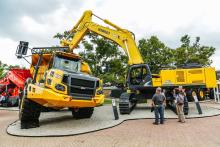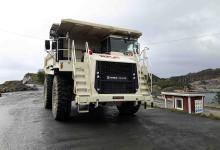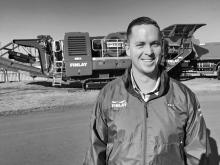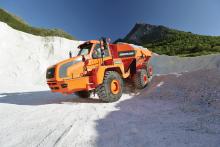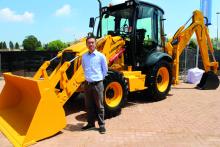DISA Equipment, trading as
Managing Director Chris Whitehead, who took the reins in April 2016, says over the years, traditional big markets for the brand in southern Africa have always been general construction, plant hire and scrap handling. He believes the biggest opportunity moving forward is in the heavy ranges, targeting markets such as coal mining, rehandling of commodities, but more importantly the aggregates industry. He is aiming to increase volumes in the larger excavator size classes such as the 52tonne Doosan DX520LCA. This will be complemented by the growing popularity of the 19-22tonne size class wheel loaders.
“In the short-term, we aim to keep the momentum going in the traditional general construction range. We aim to make some inroads in the larger excavator market in the medium term. In the long term, we also aim to move more of our articulated dump trucks,” says Whitehead. “I strongly believe we can deliver on these targets by creating a customer-centric organisation, as we continue working with customers to ensure mutual success.”
Whitehead says the company’s biggest opportunity is in its 34+ tonne excavators. “That translates into making more inroads into the quarrying and mining sectors. We also see good opportunity for our 21tonne wheeled loader in those markets,” he says.
Speaking of the articulated hauler market, which is a tough marketplace to crack in southern Africa due to the traditional dominance of brands such as
Whitehead agrees that the task of growing the larger ranges into quarries is a daunting one, but he has some plans up his sleeve. “It’s about getting the market to really understand the quality of the Korean build and the full range of equipment we have in our range. For example, we are relatively new players in the articulated truck market, but we have a good match between our wheeled loaders, excavators and articulated trucks, and it’s a matter of time we penetrate the market with these ranges of equipment,” he says.
“With over 2,500 Doosan machines already operational in the South African market, it’s a matter of building on the successes and legacy these machines have created in the market.”

